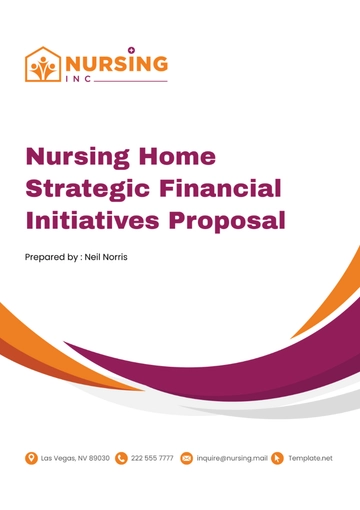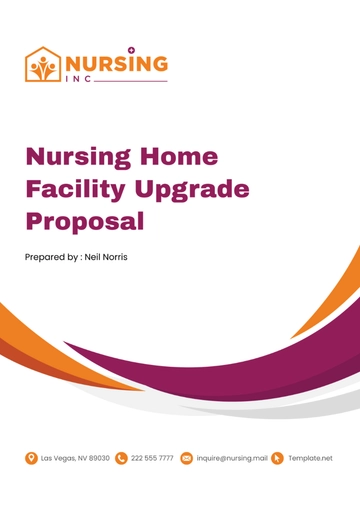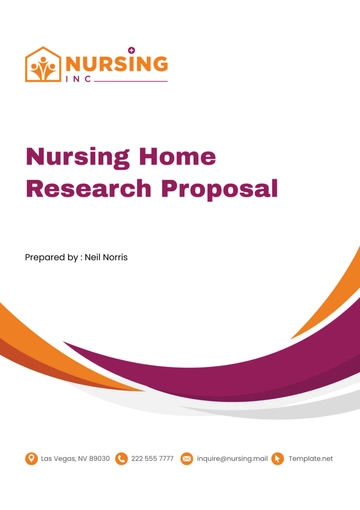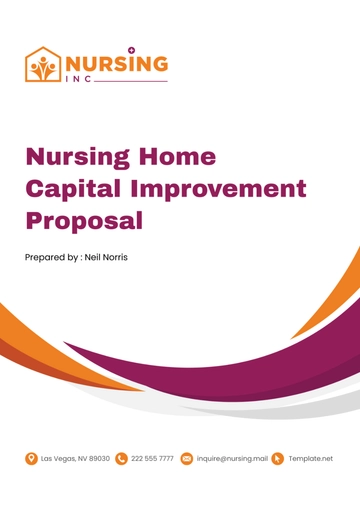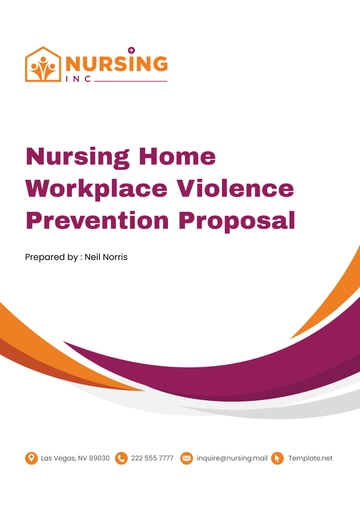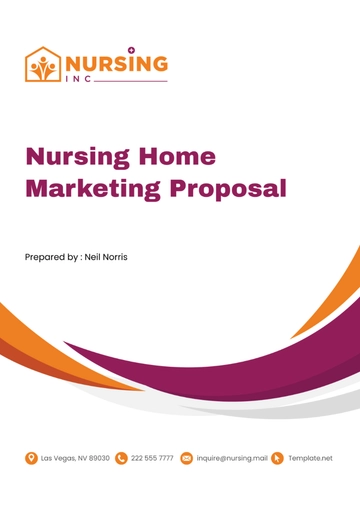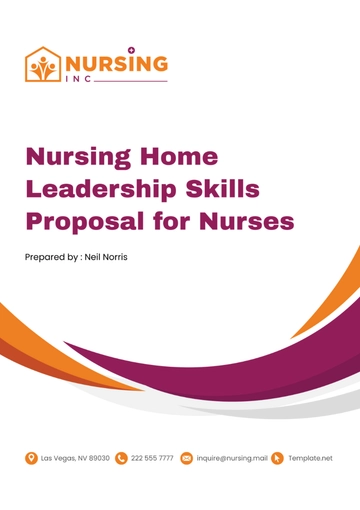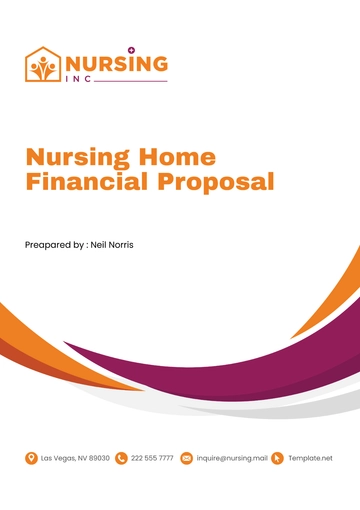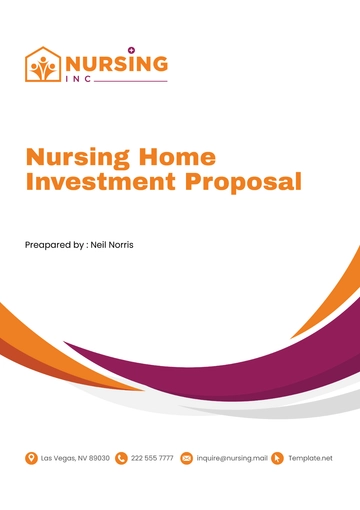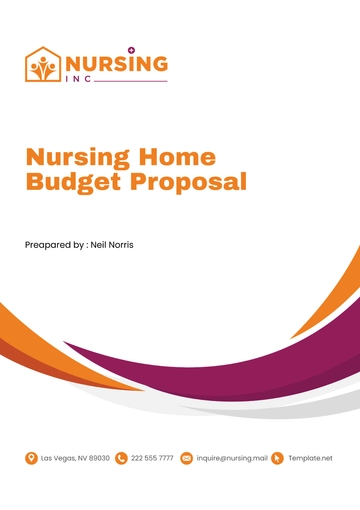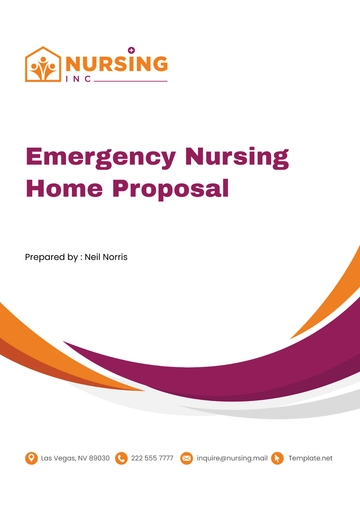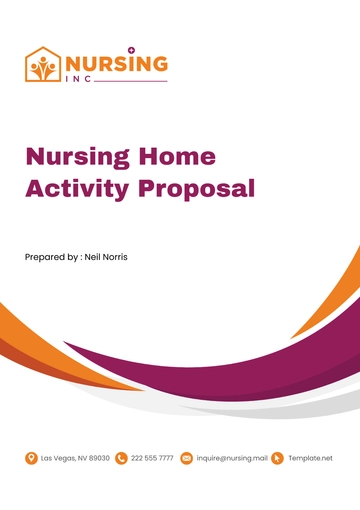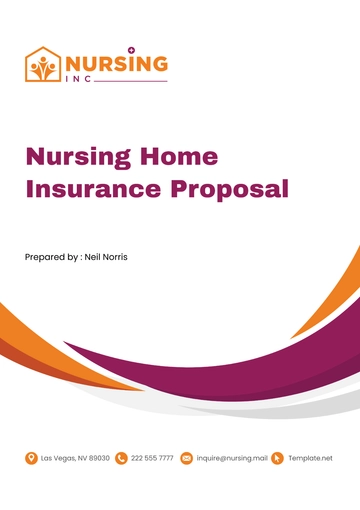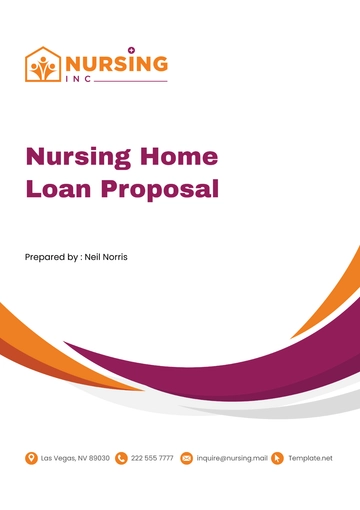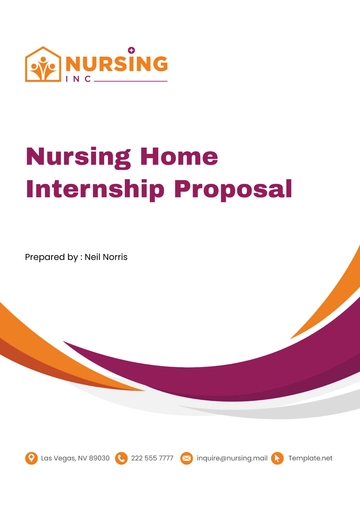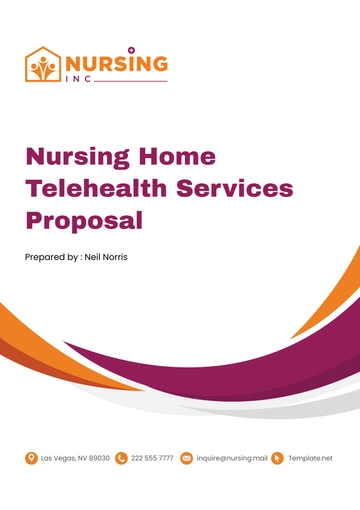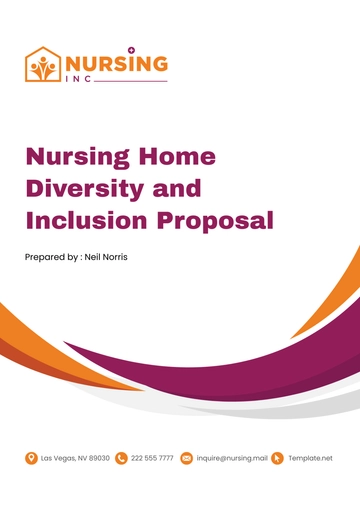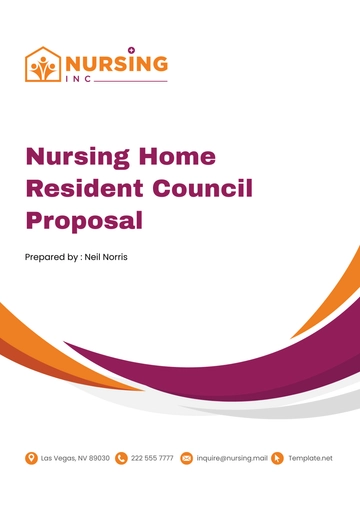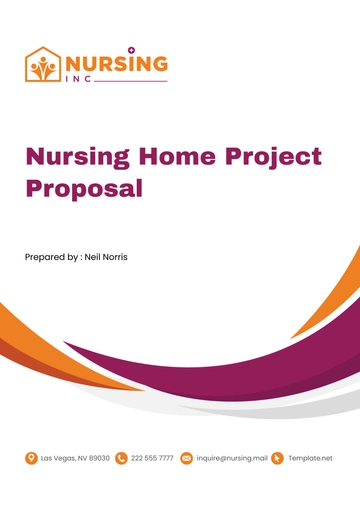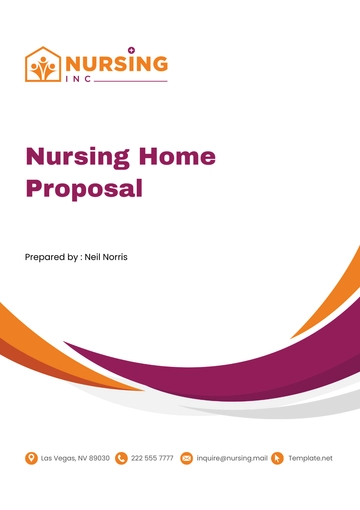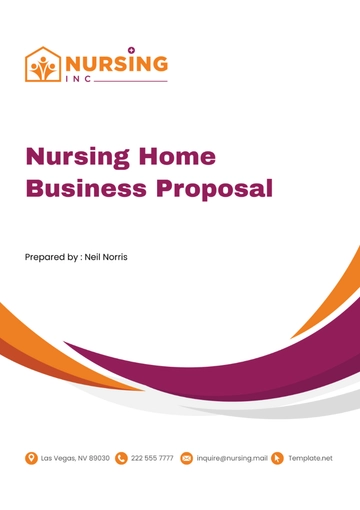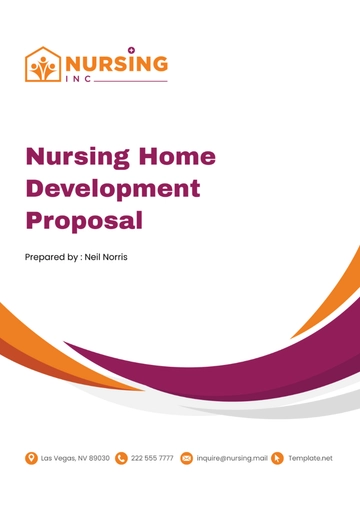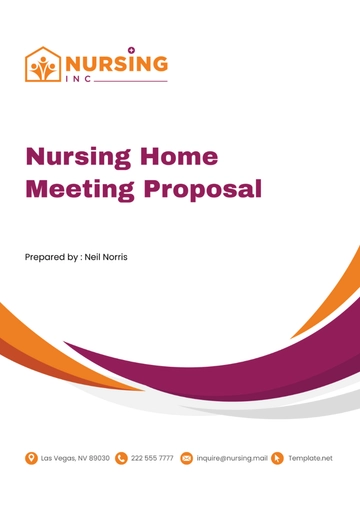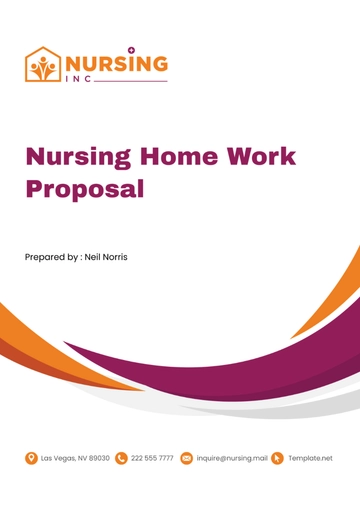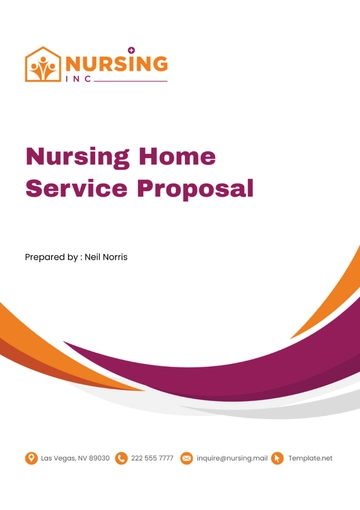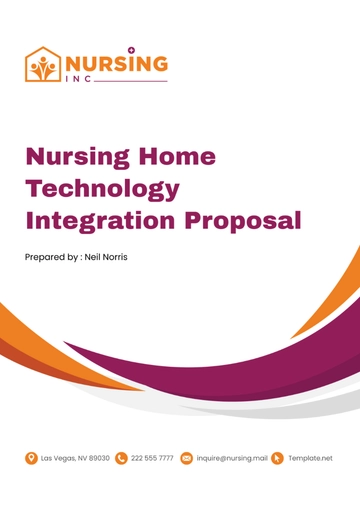Free Nursing Home Leadership Skills Proposal for Nurses
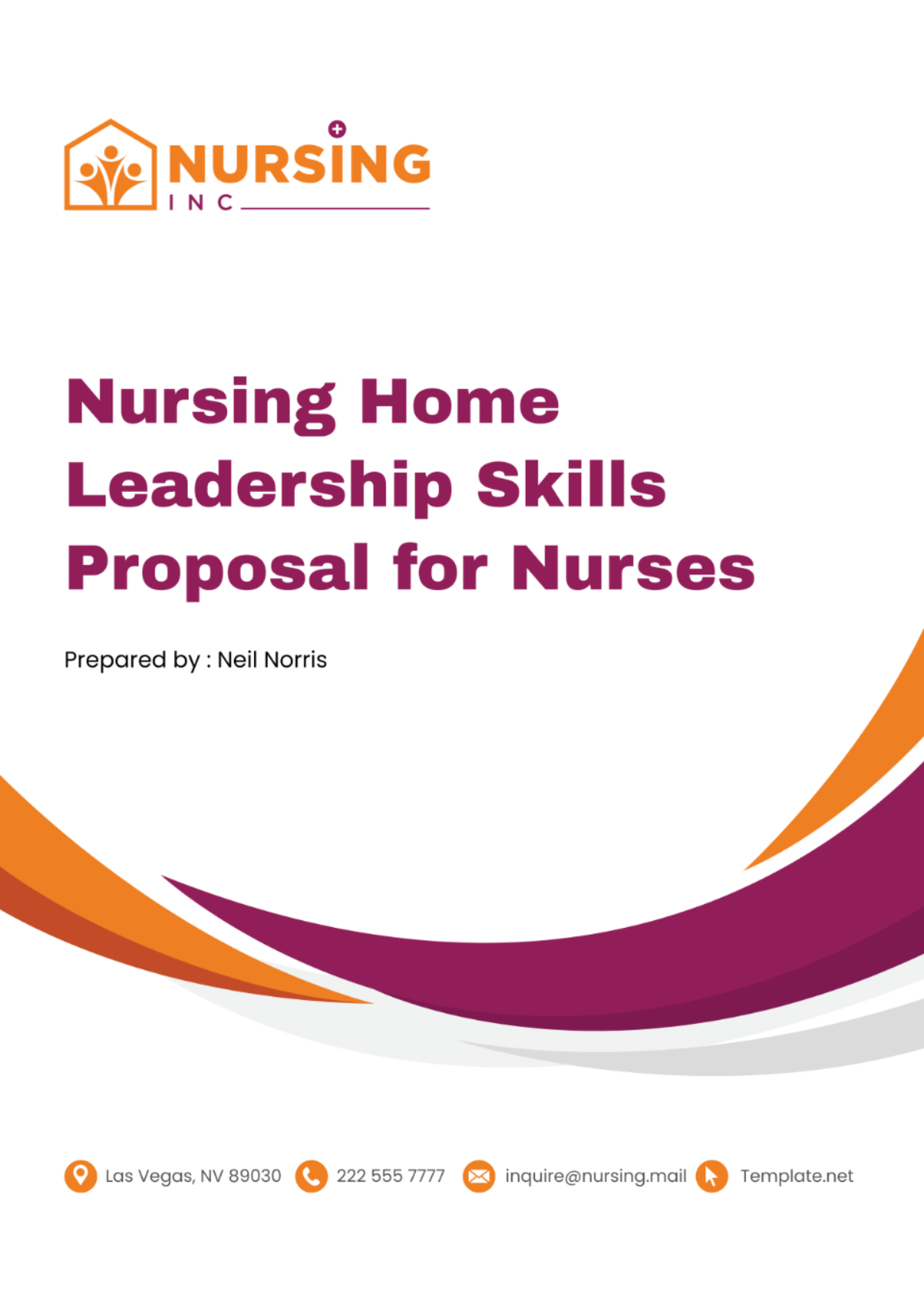
I. Executive Summary
In the ever-evolving landscape of healthcare, the importance of robust leadership within nursing homes cannot be overstated. Recognizing this, we are committed to enhancing the leadership skills of our nurses through a comprehensive Leadership Skills Development Program. This initiative is designed to equip our nursing staff with the necessary tools, knowledge, and competencies to excel in their roles, foster a positive work environment, and ensure the highest quality of patient care. Through this proposal, we aim to:
Improve patient care quality and safety.
Enhance communication and teamwork among staff.
Increase efficiency in managing resources and operations.
Strengthen problem-solving and decision-making capabilities.
Develop a more motivated and engaged nursing staff.
II. Introduction
Currently, our nursing home operates with a dedicated team of nurses who excel in providing care but face challenges in leadership and management aspects. This has led to a recognition of the need for a structured leadership development program tailored specifically to our unique environment. The leadership qualities of our nursing staff are crucial not only for the direct care of our residents but also for the operational efficiency and morale of our team.
III. Background and Rationale
The challenges faced by our nursing home, including high patient acuity, complex healthcare needs, and the multidisciplinary nature of care delivery, underscore the need for effective leadership. Without strong leadership, these challenges can lead to decreased patient satisfaction, lower staff morale, and inefficiencies in care delivery. In response, we have recognized the importance of developing and enhancing the leadership skills of our nurses, who are on the front lines of patient care and play a critical role in the day-to-day operations of our facility.
Research Findings
Leadership in healthcare settings directly influences patient outcomes, staff retention, and overall organizational performance.
Effective leadership is associated with improved patient care quality, higher staff job satisfaction, and increased efficiency in healthcare delivery.
Leadership development programs have been shown to enhance leadership competencies, thereby positively affecting organizational culture and performance.
Gap in Leadership Skills
Leadership Skill | Current Competency Level | Desired Competency Level |
Communication | Moderate | High |
Decision-Making | Low | High |
Team Building | Moderate | High |
Emotional Intelligence | Low | High |
Problem-Solving | Moderate | High |
The table above highlights significant gaps in key leadership skills among our nursing staff. While there are moderate levels of competency in communication, team building, and problem-solving, there is a noticeable deficiency in decision-making and emotional intelligence. These gaps underscore the critical need for a targeted Leadership Skills Development Program. By addressing these areas, we can empower our nurses to lead more effectively, enhancing both the quality of patient care and the overall operation of our nursing home.
IV. Proposal Goals
To address the identified gaps and elevate the level of leadership within our nursing home, we have set forth a series of goals for our Leadership Skills Development Program. These goals are designed with a clear focus on enhancing the capabilities of our nursing staff, improving patient care, and fostering an environment of continuous improvement and excellence in leadership.
To develop and enhance core leadership competencies among nursing staff.
To implement a structured and sustainable leadership development program.
To improve communication, teamwork, and operational efficiency within our nursing home.
To establish a supportive culture that values leadership and professional growth.
To monitor and evaluate the impact of the leadership development program on staff performance and patient care.
V. Leadership Skills Development Program
A. Core Competencies
Leadership within the nursing home environment requires a multifaceted skill set that encompasses both technical and interpersonal abilities. Our program focuses on five core competencies that are essential for effective leadership: communication, decision-making, team building, emotional intelligence, and problem-solving. Each competency is critical for navigating the complexities of healthcare, managing teams, and ensuring the highest standards of patient care. Our development program will provide nurses with the tools and knowledge to excel in these areas, fostering a leadership culture that benefits our entire community.
B. Proposed Training Modules
To achieve our goals, we have designed a series of training modules that cover the identified core competencies. These modules are structured to provide both theoretical knowledge and practical application opportunities, ensuring that our nursing staff can effectively translate learning into practice.
Module | Frequency | Duration |
Effective Communication | Quarterly | 2 Days |
Decision-Making | Bi-annually | 3 Days |
Team Building | Quarterly | 2 Days |
Emotional Intelligence | Bi-annually | 3 Days |
Problem-Solving | Quarterly | 2 Days |
C. Implementation Plan
The successful implementation of the Leadership Skills Development Program requires careful planning and coordination. We have outlined a plan that details the timeline, staffing requirements, and delivery format for each module, ensuring that our program is both effective and sustainable.
Module | Timeline | Staffing Requirement | Format |
Effective Communication | 2 Trainers | In-person | |
Decision-Making | 2 Trainers, 1 Guest Speaker | Hybrid | |
Team Building | 1 Trainer, 1 Facilitator | In-person | |
Emotional Intelligence | 2 Trainers, 1 Psychologist | Hybrid | |
Problem-Solving | 2 Trainers, 1 Expert | In-person |
VI. Evaluation and Metrics
To ensure the Leadership Skills Development Program achieves its intended outcomes, a comprehensive evaluation strategy will be implemented. This strategy will involve both quantitative and qualitative metrics to assess the impact of the training on leadership competencies, team dynamics, operational efficiency, and patient care quality. Regular evaluations will allow us to measure progress, identify areas for improvement, and make data-driven decisions to refine the program over time.
Metric | Target Value |
Improvement in Leadership Competency Scores | Increase by 20% |
Staff Satisfaction Survey Results | Increase by 15% |
Patient Care Quality Indicators | Improvement by 10% |
Reduction in Staff Turnover Rate | Decrease by 10% |
Increase in Operational Efficiency | Increase by 15% |
Evaluations will occur bi-annually, with interim assessments at the end of each training module. This schedule allows for timely adjustments to the program and ensures that leadership development efforts are continuously aligned with our organization's goals and the evolving needs of our nursing staff and residents.
VII. Budget and Resources
The successful execution of the Leadership Skills Development Program requires a detailed budget that accounts for all necessary resources. By securing adequate funding and resources, we can ensure a high-quality training experience for our nursing staff that is both effective and sustainable.
Training Materials | $5,000 |
Facilitator Fees | $10,000 |
Venue Costs | $3,000 |
Technology/Software | $2,000 |
Miscellaneous | $1,000 |
Total | $21,000 |
VIII. Risk Management and Contingencies
In any program of this scale, there are potential risks that could impact its success. Recognizing and planning for these risks is essential to the program's overall effectiveness and sustainability.
Risk | Likelihood | Impact | Mitigation |
Insufficient Staff Participation | Medium | High | Implement flexible scheduling, provide incentives |
Budget Overruns | Low | Medium | Closely monitor expenses, adjust budget as needed |
Inadequate Trainer Availability | Medium | High | Secure contracts early, have a list of backup trainers |
Technology Failures | Low | Medium | Have IT support on standby, provide training in advance |
IX. Conclusion
In conclusion, the Leadership Skills Development Program represents a strategic investment in the future of our nursing home and the quality of care we provide. By enhancing the leadership skills of our nursing staff, we aim to foster a culture of excellence, teamwork, and continuous improvement. This proposal outlines a clear path forward, with specific goals, a structured training program, and a plan for evaluation and risk management. Through this initiative, we are committed to strengthening our organization from within, ensuring a positive impact on our staff, residents, and the broader community we serve.
- 100% Customizable, free editor
- Access 1 Million+ Templates, photo’s & graphics
- Download or share as a template
- Click and replace photos, graphics, text, backgrounds
- Resize, crop, AI write & more
- Access advanced editor
Explore the Nursing Home Leadership Skills Proposal for Nurses Template from Template.net, your solution for cultivating leadership excellence among nurses. This editable and customizable template outlines a strategic approach to leadership development, ensuring a comprehensive proposal that can be precisely tailored in our AI Editor tool, fostering a culture of leadership and innovation in your nursing home.
You may also like
- Business Proposal
- Research Proposal
- Proposal Request
- Project Proposal
- Grant Proposal
- Photography Proposal
- Job Proposal
- Budget Proposal
- Marketing Proposal
- Branding Proposal
- Advertising Proposal
- Sales Proposal
- Startup Proposal
- Event Proposal
- Creative Proposal
- Restaurant Proposal
- Blank Proposal
- One Page Proposal
- Proposal Report
- IT Proposal
- Non Profit Proposal
- Training Proposal
- Construction Proposal
- School Proposal
- Cleaning Proposal
- Contract Proposal
- HR Proposal
- Travel Agency Proposal
- Small Business Proposal
- Investment Proposal
- Bid Proposal
- Retail Business Proposal
- Sponsorship Proposal
- Academic Proposal
- Partnership Proposal
- Work Proposal
- Agency Proposal
- University Proposal
- Accounting Proposal
- Real Estate Proposal
- Hotel Proposal
- Product Proposal
- Advertising Agency Proposal
- Development Proposal
- Loan Proposal
- Website Proposal
- Nursing Home Proposal
- Financial Proposal
- Salon Proposal
- Freelancer Proposal
- Funding Proposal
- Work from Home Proposal
- Company Proposal
- Consulting Proposal
- Educational Proposal
- Construction Bid Proposal
- Interior Design Proposal
- New Product Proposal
- Sports Proposal
- Corporate Proposal
- Food Proposal
- Property Proposal
- Maintenance Proposal
- Purchase Proposal
- Rental Proposal
- Recruitment Proposal
- Social Media Proposal
- Travel Proposal
- Trip Proposal
- Software Proposal
- Conference Proposal
- Graphic Design Proposal
- Law Firm Proposal
- Medical Proposal
- Music Proposal
- Pricing Proposal
- SEO Proposal
- Strategy Proposal
- Technical Proposal
- Coaching Proposal
- Ecommerce Proposal
- Fundraising Proposal
- Landscaping Proposal
- Charity Proposal
- Contractor Proposal
- Exhibition Proposal
- Art Proposal
- Mobile Proposal
- Equipment Proposal
- Student Proposal
- Engineering Proposal
- Business Proposal
